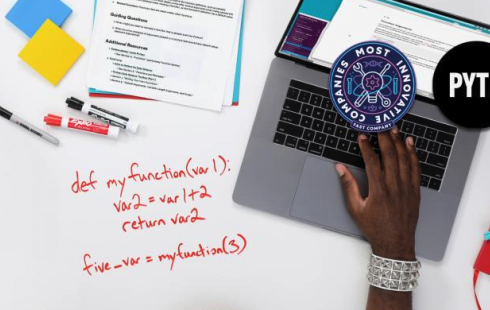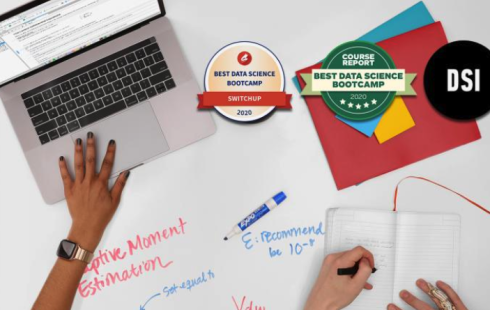Whether you dabble in data, have an existing degree, or are brand new to the discipline, this data science course is for you. No matter where you are in your career, our course takes you from foundational…
Data Engineer

- FAQ
- Courses
- Certifications
- Careers
- Jobs
- Companies
- Skills
- Articles
What Is a Data Engineer? How to Become One, Salary, Skills.
Data engineers create data architecture to collect and store large sets of data for business analysis. Here’s what to know about a data engineer’s salary, needed skills and how to become one.
What Is a Data Engineer?
Data engineers build, maintain or develop systems that collect, store and analyze data at scale. Data engineers utilize big data tools, computer programming languages and machine learning techniques to gather and clean large amounts of data and prepare it for insight and data analysis. Data engineers frequently work alongside data scientists to accomplish their work.
What Do Data Engineers Do?
Data engineers build the architectures, pipelines and tools that convert data into usable information for a business.
Data Engineer Responsibilities
- Build, design and maintain data architecture.
- Design, build, test and maintain data pipelines.
- Validate or build systems to validate data sets and data sources.
- Implement machine learning models at scale.
- Ensure systems maintain compliance with data security policies and legislation.
- Collaborate with varied teams and enterprise stakeholders.
Day-to-Day Responsibilities of Data Engineers
- Use SQL to create and maintain data sets, databases, tables, data lakes or data warehouses.
- Use big data tools like Apache Spark and Apache Kafka to automate data pipelines and create, move or transform data sets.
- Develop connections between multiple sources of data with APIs or database connectors.
- Communicate with different parties to understand data capture and management needs.
Data Engineers Within a Company
Data engineers are usually part of a data science or data analytics team. They often focus their expertise on a specific area of a business, like toward a platform for product or business needs. They also frequently work alongside data scientists, data analysts and business intelligence analysts.
Importance of Data Engineers
The work of data engineers allows professionals to access and analyze data as well as make business decisions at a more efficient rate. Without data engineers, business data would be left largely unorganized, unusable and unprofitable for a company.
What Skills Are Needed to Be a Data Engineer?
Qualifications to Be a Data Engineer
- Applicable internship experience and/or on-the-job training.
- Ability to build and maintain data architectures, pipelines and sets.
- Expertise in data mining, data storage and Extract-Transform-Load (ETL) processes.
- Working knowledge of SQL and relational databases.
Data Engineer Prerequisites
- Bachelor’s degree in computer science, data science, software engineering, information systems or a similar field.
- Master’s degree in data engineering, data analytics, data science or a similar field.
Data Engineer Hard Skills
- Big data tools and databases.
- Cloud computing knowledge.
- Computer programming languages (Java, C, C++, NoSQL, Python, R, Scala, SQL).
- Data aggregation, management, mining and storage.
- Data security.
- ETL and data transformation processes.
- Machine learning knowledge.
Data Engineer Soft Skills
- Adaptability.
- Critical thinking.
- Teamwork and collaboration.
- Verbal and written communication.
Tools and Programs Data Engineers Use
- Amazon Redshift
- Apache Kafka
- Apache Spark
- C
- C++
- Java
- MongoDB
- NoSQL
- Python
- R
- Scala
- SQL
- Snowflake
How to Become a Data Engineer
Data Engineer Education and Experience
Data engineer candidates are often expected to have a bachelor’s degree in computer science, data science, software engineering, information systems or a similar field. They also may have a master’s degree in data engineering, data analytics, data science or a similar field to enter competitive or higher-level roles.
Candidates will also need to obtain applicable experience through an internship and/or on-the-job training. Additionally, knowledge in the areas of programming languages (Java, Python, R, Scala, SQL), data warehousing and Extract-Transform-Load (ETL) processes, big data, cloud computing, data security, machine learning and effective communication are recommended.
Data Engineer Certificates and Courses
- Data Warehouse - The Ultimate Guide
- Introduction to Cloud Security with Microsoft Azure
- Intro to Data Science Webinar
- Mastering Data Structures & Algorithms Using C and C++
- Practical Data Structures & Algorithms in Java + HW
- Python for Data Structures, Algorithms and Interviews!
- The 21 Best Coding Bootcamps
- Writing production-ready ETL pipelines in Python / Pandas
Data Engineer Career Path
Data engineers can serve as an entry-level role or as a mid-level role depending on each company and its related needs. If not beginning as a data engineer, professionals tend to first start their careers as a software engineer, data analyst or a similar role. After gaining experience as an entry-level and mid-level data engineer, professionals can move into a senior data engineer role. From there, professionals may progress into management and leadership roles like chief data officer or director of data engineering.
Data Engineer Salary and Job Outlook
Data engineers are in-demand, with U.S. employment for database architects and similar roles projected to increase 9 percent by 2031.
The full compensation package for a data engineer depends on a variety of factors, including but not limited to the candidate’s experience and geographic location. See below for detailed information on the average data engineer salary.
Expand Your Data Engineer Career Opportunities
Expand what you’re capable of with expert-led data science courses from Udemy.
Data Engineer Certifications + Programs
Bring your resume to the next level with in-demand data science certifications from Udacity.






